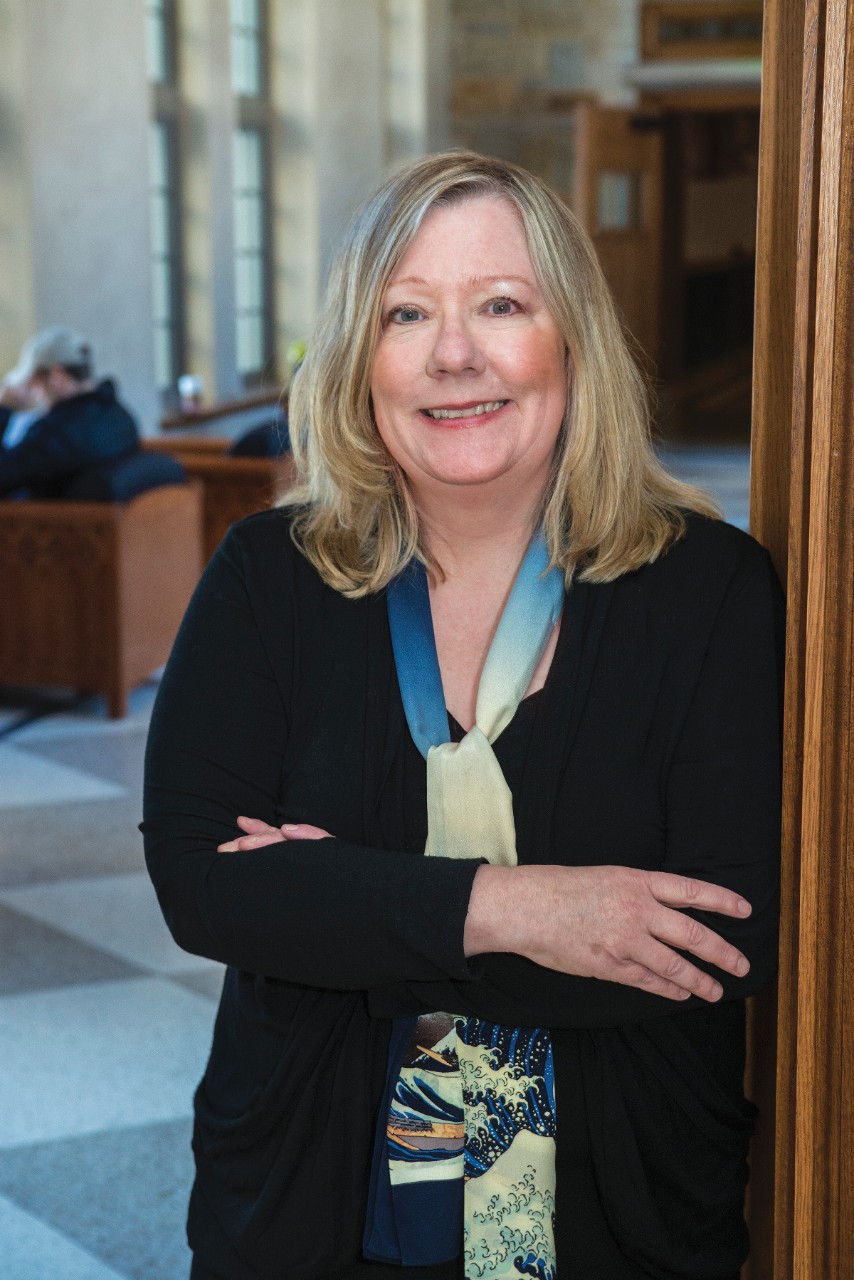Libby Professor of Law and Theology Cathleen Kaveny made an unusual dedication in her new book, Ethics at the Edges of Law: Christian Moralists and American Legal Thought: to the Religion Department Lounge at Princeton University.
As she writes in the book’s preface, the lounge was a place where professors, graduate students and “excessively bold undergraduates” like herself held rigorous yet respectful conversations about political, moral, cultural and religious issues of the day.

Cathleen Kaveny (Photo by Lee Pellegrini)
This ideal of intellectual exchange, Kaveny writes, stands in counterpoint to the culture wars of today that she sought to capture in her book.
Ethics at the Edges of Law is structured as an exchange between the American legal tradition and the tradition of Christian ethics. She chose leading contemporary figures in Christian ethics, such as Paul Ramsey, Stanley Hauerwas and Tristram Engelhardt, among others, as “conversation partners” for her book.
Kaveny’s approach is counter to the way most ethicists think about the law. “Most ethicists would say, ‘I get my ethical analysis and then apply it through the law to bind society.’ Also, there are a lot of thinkers based in law who say, ‘Let’s look at how the resources of the theological tradition can help illuminate legal questions.’
“I’m doing the reverse. I’m trying to make the case that ethicists of whatever stripe can treat the secular law as a worthwhile source and conversation partner,” said Kaveny, who teaches Bioethics and the Law; Faith, Morality and Law; Contracts, and Complicity. “It will help advance and illuminate aspects of their own commitment. As I studied law and started to teach law, I saw there was a lot of moral wisdom in the law.”
Kaveny is talking specifically about the realm of common law. “Moral judgment infuses common law subjects, like contracts and torts, in a very practical way. Common law develops by cases, stories that have great moral tensions. I have a lot of respect for the common law tradition.”
For example, in one chapter, Kaveny brings the case of Watts v. Watts – a staple of many first-year contract law textbooks – into conversation with the writings of ethicist Gene Outka, author of the book Agape, to explore issues of love and justice.
In another chapter, Kaveny pairs the issues surrounding the use of victim impact statements in criminal sentencing with ethicist Margaret Farley, whose work highlights the role of experience in moral discernment.
Kaveny’s career itself has been a mixture of the law and ethics. As an undergraduate, she majored in religion. She earned a law degree, and then the following year, a doctorate in ethics. She clerked for Judge John T. Noonan on the US Court of Appeals, Ninth Circuit and practiced health law in Boston.
“I’m interested in nurturing younger scholars whose work is at the intersection of law and ethics,” added Kaveny, who noted that there are areas beyond the scope of her book that can be mined. “I think that would be really exciting.”
—Kathleen Sullivan | University Communications



